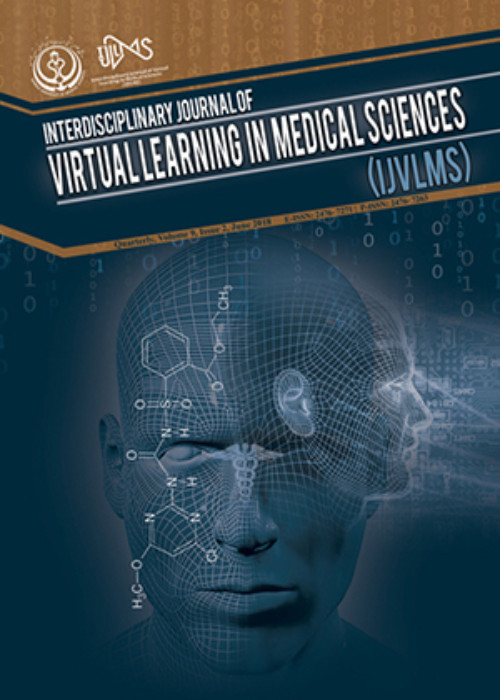Students’ Experiences of E-Learning Challenges; a Phenomenological Study
The emergence and use of e-learning in education have been one of the most important achievements of higher education which can solve many of the problems of this system, and addressing the challenges of e-learning are one of the concerns and problems of our society.
The purpose of this study was to explore the students’ experience of e-learning challenges at the Virtual School of Shiraz University of Medical Sciences (SUMS).
The research design was qualitative with the phenomenological method. Potential participants included students from Virtual School of SUMS. 10 students were selected using a purposive sampling method with a standard technique. The data collection method consisted of a semi-structured interview. After coding the data using thematic analysis method, basic, organizing, and inclusive themes were extracted.
Results classified the challenges of e-learning at the Virtual School of SUMS into six general categories which are as follows: 13 educational challenges, including the extensive amount of context in the courses as well as a large number of modules, disregarding the educational prerequisites of the field, failure of professors to accompany students at the early stages of the projects, etc.; 10 organizational challenges including non-diversification of e-learning courses, high availability of online academic staff due to lack of e-learning experience, 9 ethical challenges such as lack of appropriate culture for applying this discipline, negative perception towards e-learning, 8 technical challenges including low speed of internet, shortage of physical spaces in e-learning, 5 supportive challenges such as lack of facilities, lack of permission to use the university canteen, 5 evaluation challenges such as mandatory in-person exams in e-learning courses, not allocating a reasonable proportion of the final mark to in-person exams, 3 managerial challenges such as inefficiency of the educational content, rejection of students by the head of virtual faculty due to lack of time and lastly, 2 communicational challenges such as lack of interaction with academic staff and classmates as well as lack of face-to-face communication.
Understanding the challenges and obstacles of establishing e-learning in Iran's higher education and providing practical solutions for them, developing this type of education and, as a result, the excellence of Iran's educational system.
- حق عضویت دریافتی صرف حمایت از نشریات عضو و نگهداری، تکمیل و توسعه مگیران میشود.
- پرداخت حق اشتراک و دانلود مقالات اجازه بازنشر آن در سایر رسانههای چاپی و دیجیتال را به کاربر نمیدهد.



